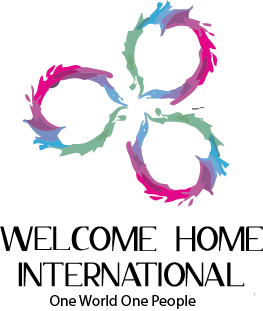New projects approved
Welcome Home International is proud to announce that we have received a positive result on SIX project applications submitted with TWO as coordinator! The projects include:
Skills4Integration - a project that addresses the integration of adult refugees, asylum seekers and migrants who have notable disadvantages in literacy, numeracy and digital skills. Literacy, numeracy and digital skills are fundamental to master typical situations in everyday working life. Competence deficits in these areas can prove to be an obstacle to permanent and successful integration into the labour market. The project will research the skills gap between new arrivals and their basic educational, linguistic, numeric and digital needs to reach a level of civic engagement and employability in the host country.
Emotional Management for Migrant Women Project is a training plan for the purpose of developing and managing emotional skills in the frame of immigration, reaching both female migrants and social workers and NGOs with the aim of improving their risk situation in the adaptation and integration to a different country from that of their origin and, in the end, psychological well-being and the inclusion in the host country. The training system must be developed in these two lines in complementary ways, but they must be faced paying attention to the different target groups and the specific way they have to develop this basic skill.
SUSTAINABLE LIFE SKILLS CAFE Sustainable life skills have a substantial effect on all aspects of life, especially social environment and business life. Soft skills include most of the important abilities such as problem-solving and the ability to work in a team. These skills are particularly important in sectors where social relation is of high importance for the delivery and quality of the work. In this respect, in the EU, disadvantaged groups including migrants, marginalized groups and low/semi-skilled adults are the most vulnerable part of the community in terms of lacking sustainable & soft skills or mindset.Sustainable Cafe
Unrooting Violence: tackling social norms for the prevention of gender-based violence: Sensitize and advocate for raising awareness on various aspects of GBV and their negative consequences for women, men, families, and the community at large; Enhance the knowledge and skills of adult support workers and trainers; Strengthen participants’ knowledge through training and support; Help participants to reduce harmful traditional practices, behaviors, and customs contributing to GBV;-Create an open dialogue with community members about GBV issues and gender stereotypes; Design bystander intervention strategies to go deeper to the stereotypes and prejudices that pertain GBV and empower people to find their own voice beyond social norms; Bring together stakeholders at local, regional, and national level through advocacy practices and exploration of policy solutions
Pedagogical approaches, provision and innovation for young refugees and immigrants: The presence of an immigrant population of third-country nationals is a common feature of all European Union countries. Many of these people are under 30 years of age and include refugees from countries in the midst of war or economic crisis, unaccompanied minors, and young people who lack adequate schooling. From this point emerges the need to seek strategies to facilitate the integration of these groups to ensure social and economic progress, as well as intercultural cohesion; objectives which, for several years, have been a priority for the European Union. However, many of these groups (notably in the five countries of this project) find themselves in positions of disadvantage and fewer opportunities, and non-formal education organisations stand out as a powerful tool to remedy this. Unfortunately, there is a lack of coordinated strategies and efforts to bring together the innovation and experiences of organizations working in this field at the trans-European level. The consortium of organisations of this project propose the development and dissemination of tools and materials which address a wide variety of topics with the aim of facilitating the work of non-formal education entities and organizations in their activities with young refugees and migrants.
Re-Start: Entrepreneurship Support for Refugees: Refugees are more likely to start new businesses, but they face significant barriers to success. Supporting entrepreneurship among migrants and refugees is an effective way to include them in local economies. Newcomer entrepreneurs are more likely than natives to start a new business in almost all OECD countries, but the survival rate of their companies is lower than for natives. The main ones are their legal status, lack of language skills, limited entrepreneurial skills and poor knowledge of the local context. And finally, there are still great difficulties in accessing finance. Hence, their needs differ from the needs of entrepreneurs born in the host country and vary significantly based on the development stage of the venture. Refugee and migrant entrepreneurs most often focus on sectors with low entry requirements where they can provide value based on their cultural background or experience of resettlement. They are often focused on securing a regular income and often create positive social impacts by providing valuable goods and services to their migrant community, through the supply chain to the country of origin, or by employing fellow migrants.
